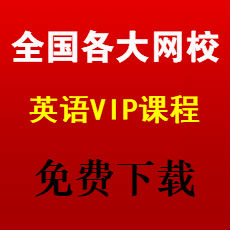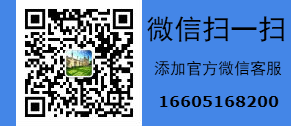仁爱七下英语电子课本点读有声电子课本仁爱版翻译和答案
更新时间:2022-07-14 16:14点击:





仁爱七下英语电子课本点读有声电子课本仁爱版翻译和答案
下载地址
http://www.gufengnet.com/4338.html
10倍速抗遗忘轻松记单词下载
https://pan.baidu.com/s/1A5qOEhDKxgq
(责任编辑:谷雨英语单词速记网)
下载地址
http://www.gufengnet.com/4338.html
10倍速抗遗忘轻松记单词下载
https://pan.baidu.com/s/1A5qOEhDKxgq
资料目录
仁爱版七年级下册英语单词录音朗读
仁爱版七年级下册英语课文录音朗读
仁爱版英语七年级下册单词mp3+lrc
仁爱版英语七年级下册课文mp3+lrc
仁爱版七年级下册英语单词表(带音标)
仁爱版七年级英语全册复习笔记
仁爱版七年级英语下册电子课本
仁爱英语七年级下册重点短语及句子
仁爱英语七年级下册重要知识点和语法点归纳
仁爱英语七年级下学期课文翻译
仁爱版七年级英语下册课本参考答案
仁爱版七年级英语下册全册教案
仁爱英语七年级寒假综合练习题(附答案)
仁爱英语七年级下册词汇专项练习
仁爱英语七年级下册书面表达专练
仁爱版英语七年级下册课堂检测
举例
仁爱英语七年级下册知识点语言点汇编
Unit 7 The Birthday Party
Topic1 Can you dance?
三、定冠词the 的用法
1) 定冠词特指某(些)人或某(些)事物, 以区别于同类中其他的人或事物。
The bag in the desk is mine. 桌子里的书包是我的。
Is this the book you are looking for? 这是你要找的书吗?
Do you know the man in back? 你知道穿黑色衣服的人是谁吗?
It is not the car we are looking for. 这不是我们要找的车。
The man has found his child. 那个人找到了他的孩子。
2) 定冠词用来指上文中已提到过的人或事物。
I bought a book from Xinhua book-shop. The book costs 15 yuan.
我从新华书店买了一本书. 这本书值十五元。
I saw a film yesterday.The film was ended at eight o'clock.
我昨天看了一场电影。电影八点钟结束的。
Lucy bought a radio yesterday, but she found something was wrong with the radio.
露西昨天买了一台收音机,但是她发现收音机有问题。
3) 定冠词用于表示世界上独一无二的事物或用于自然界现象或方位名词之前。
the sun the moon the earth the sky the world the sea
The sun is bigger than the moon. 太阳比月亮大。
I can see a bird in the sky. 我能看到天空中有一只小鸟。
I like to have a walk with the bright moon light in the evening. 我愿晚上在明亮的月光下散步。
4) 定冠词与单数名词连用,表示这一类人或物。
The dog is not too danger. 狗不太危险。
The cat is an animal. 猫是一种动物。
The umbrella in the shop is very cheap in this season. 这个季节商店里的雨伞很便宜。
5) 定冠词与某些形容词连用,使形容词名词化, 表示某一类人。
the poor, the rich, the wounded, the sick, the deaf.
The wounded were brought to the hospital. 受伤者被送到了医院。
He always helps the poor. 他经常帮助穷人。
The deaf can go to this special school. 耳聋者可以进这所特殊学校上学。
6) 用在序数词, 形容词最高级和表示方位的名词前。
This is the biggest city in China I have ever visited. 这是我在中国参观的最大的城市。
I saw a plane coming from the east. 我看见一架飞机从东方飞来。
He is the last one to help me. 他不会来帮助我的。
7) 定冠词用在演奏乐器的名称和文艺活动,运动场所的名称前。
The little girl likes to play the violin. 小女孩喜欢拉小提琴。
They are going to the cinema tonight. 他们今晚要去影院看电影。
The theater was on fire last week. 剧院昨天着火了。
8) 定冠词用在报刊,杂志的名称的名词之前。
I am reading the China Daily now. 我现在正读中国日报。
Have you got the Evening Paper yet? 你拿到晚报了吗?
The Times is a foreign newspaper. 泰晤士报是一家外国报纸。
The Peking Review is on the desk. 北京周报在桌子上放着。
9) 定冠词用在江河,海洋,山脉,群岛的名称之前。
We live near the Yellow River. 我们住在黄河边上。
The Changjiang River is the biggest one in China. 长江是中国最大的河。
The Himalayas is located in Tibet. 喜马拉雅山位于西藏。
10) 定冠词用在姓名复数之前,表示一家人。
The Greens is very kind to us. 格林一家人待我们很好。
The Whites like the classic music. 怀特一家喜欢古典音乐。
不用冠词的场合。
1) 专有名词,抽象名词和物质名词之前一般不用冠词。
China is a largest country in the world. 中国是世界上最大的国家。
I think water is a kind of food, too. 我认为水也是一种食物。
Cotton feels soft. 棉花摸起来柔软。
2) 表示日常餐食名词之前不用冠词,但如果指具体的饮食时用定冠词 the。
It's time for breakfast. 该吃早饭了。
What do you have for lunch? 你午饭吃点什么?
The dinner I had at that restaurant was expensive. 我在那家饭店吃的饭很贵。
3) 在季节,月份,星期,节日。球类运动,棋类游戏的名词之前不用冠词。
Summer is hot and winter is cold here. 这儿夏天热冬天冷。
New Year's Day is coming. 新年就要到啦。
Today is the first day of May. 今天是五月的第一天。
We are going to play basketball this afternoon. 今天下午我们要去打篮球。
We don't like bridge very much. 我们不太喜欢桥牌。
4)语言的名称前不用冠词。
Can you speak English? 你会讲英语吗?
It's difficult to learn Chinese well. 要学好中文很难。
Tom knows English but he doesn't know French. 汤姆懂英语但不懂法语。
5) 某些固定词组不用冠词。
by air, on foot, at night, after school, at home, go to class, in fact, from morning till night.
I'm going to Chicago by air next week. 下周我要乘飞机去芝加哥。
I go to school on foot . 我步行去学校上学。
In fact, I don't know him at all. 实际上,我一点也不认识他。
He is at home today. 他今天在家。
相关文章




 QQ客服1:2151239526
QQ客服1:2151239526  | 苏ICP备06011263号|
| 苏ICP备06011263号| 
